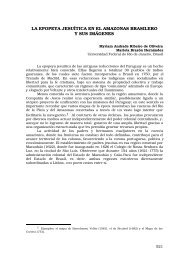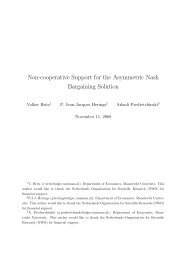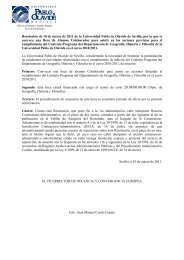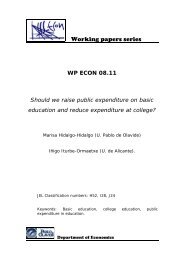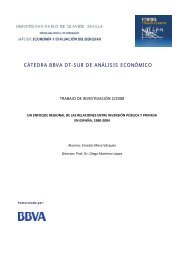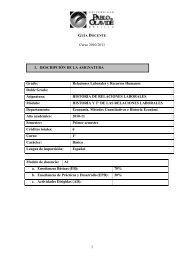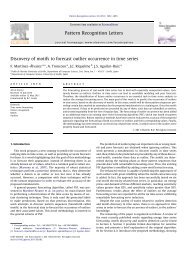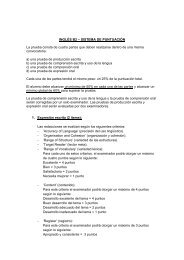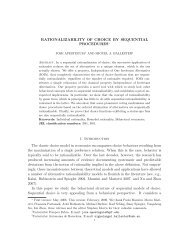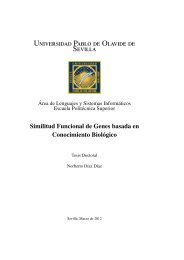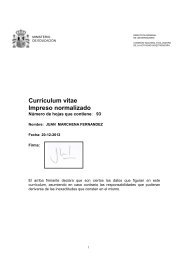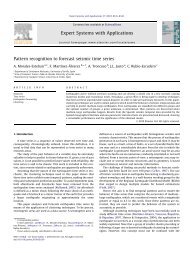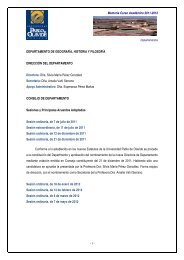Working papers series - Universidad Pablo de Olavide
Working papers series - Universidad Pablo de Olavide
Working papers series - Universidad Pablo de Olavide
You also want an ePaper? Increase the reach of your titles
YUMPU automatically turns print PDFs into web optimized ePapers that Google loves.
width and efficiency in information flows and business management, and was second to<br />
none as regards other mo<strong>de</strong>ls of the time.<br />
III<br />
In tune with the agency structure, the Rothschild House leant on other people<br />
and institutions to carry out certain activities, or to be associates in several <strong>de</strong>termined<br />
businesses. Literature brands them roughly as “correspon<strong>de</strong>nts”, although there were<br />
several levels of relationship amongst them, <strong>de</strong>pending on different factors that we aim<br />
to clarify.<br />
Correspon<strong>de</strong>nts fulfilled a major task in the network, as they constituted the link<br />
of the House to the economy of several parts of the world (countries, regions, specific<br />
cities). Paying tribute to their name, apart from drawing bills in their letters,<br />
correspon<strong>de</strong>nts usually informed accurately on the changes taking place in the market<br />
place, as well as on the situation of the commodity and stock markets in the area.<br />
Additionally, these messages were the steady source of proposals to get into <strong>de</strong>termined<br />
projects, offered to the Rothschild directly, or through the Agency, mainly with a view<br />
to finance different projects or to take part in them. The goals were, subsequently, to set<br />
up a relationship as smooth as possible with them, as well as ensuring a fi<strong>de</strong>lity that was<br />
to be compensated, both if the liaison was among equals or whether it implied a certain<br />
level of subordination.<br />
In the case of Spain, the most important correspon<strong>de</strong>nt for the Rothschild was<br />
the Bank of San Fernando (later of Spain). Ostensibly, the financiers reached an<br />
agreement with the management of the bank in 1835 by virtue of which both institutions<br />
would draw bills between them with a 0.5% charge, plus brokerage and the usual post<br />
expenses, granting a mutual 4% in the accounts to be opened 30 . This wholly<br />
instrumental liaison only allowed for the establishment of preference financial<br />
relationships, but constituted, however, the foundation that ma<strong>de</strong> a fruitful association<br />
possible during the following <strong>de</strong>ca<strong>de</strong>s. The interest was mutual because, on the one<br />
hand, the Bank found in the Rothschild a major link with the international financial<br />
markets, as well as a privileged spokesman in the course of some of the most important<br />
transactions instructed by the Government, as for instance with the overseas <strong>de</strong>bt<br />
arrangements in 1876, 1881; the House was also their main supplier of gold and silver,<br />
11<br />
http://www.upo.es/econ



